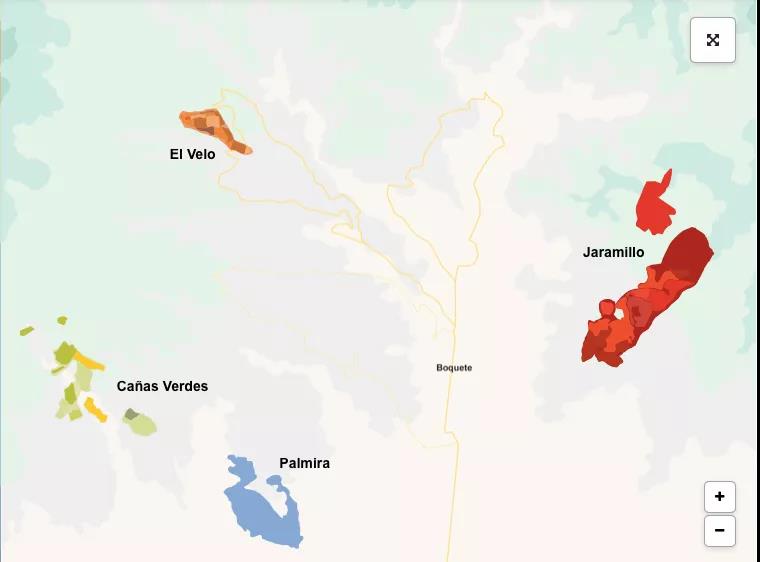Introduction to the description of taste and flavor of cat droppings, Indonesian musk cat coffee beans in the process of fermentation.
At first, civet coffee was widely regarded as a product with novelty as the selling point. The American Fine Coffee Association does not think highly of it, saying that it sells its story rather than its quality.
And Montanus (M.P. Mountanos), which first introduced Kopi Luwak to the United States, pointed out that when I heard about this internally fermented coffee, I thought it was an industry joke, but I didn't take it seriously. I was only interested in it when I saw its special report in National Geographic Magazine. after that, it took seven years to find a stable supply and began to introduce a small amount to the United States.
As the civet coffee gradually comes into our sight, the controversy about it also emerges one after another. I don't comment too much on the cruelty of captivity and the proliferation of fake civets. What we can do is to improve our discrimination, choose reliable suppliers or go to quality cafes, and sincerely. We sincerely hope that coffee merchants who raise civets will be kind to them. Civets are distributed in many areas, but only Sumatran civets, we call Indonesian civets, can produce Kopi Luwak. What makes the civet special is that it has a gland near its anus that secretes milky oil, which has always been a precious raw material for the perfume industry. Even Shakespeare's play King Lear has this dialogue: "Please give me some civets' scented oil to stimulate my inspiration." but we know that civets go from eating coffee fruit into their belly to excreting indigestible coffee beans. The coffee bean has no contact with its fragrant gland, so is the delicacy of Kopi Luwak directly related to the civet?
The answer given by scientists is yes. According to Canadian researchers, the civets' digestive juices break down the protein in coffee beans into very small particles, which enhances the aroma of coffee during grinding. In addition, the civets' intestines can filter out certain proteins, thereby reducing the bitterness of the coffee. The researchers said that the process of coffee beans passing through the intestines and stomach of civets is very similar to the wet processing process of fermenting coffee, and lactic acid bacteria play a key role in both processes. There is still a certain difference between artificial cultivation and natural cultivation. Wild civets must choose the most ripe and sweetest coffee fruits when choosing coffee fruits, which is a kind of natural screening. In addition to eating coffee fruits, it also eats insects and snakes, birds, amphibians and reptiles, so the droppings of real wild civets are mixed with all kinds of substances. And artificial breeding is to keep the musk cat in a cage, it has no chance to eat other kinds of food, hungry only coffee fruit and fruit to eat.
A documentary about the Indonesian civet coffee producing area shows that workers will put defecating pills in bananas for cats to eat, and civets can defecate regularly after eating this kind of fortified bananas. This allows coffee beans to stay in the civet's stomach for a relatively consistent time, that is, to make the fermentation time relatively consistent, which sounds inhumane. However, the flavor stability of artificially cultivated civet coffee beans is far better than that of natural ones.

Important Notice :
前街咖啡 FrontStreet Coffee has moved to new addredd:
FrontStreet Coffee Address: 315,Donghua East Road,GuangZhou
Tel:020 38364473
- Prev

Comparison of flavor characteristics of red standard, green standard and blue standard in the origin story of rose summer coffee beans in Panamanian jadeite manor
Panamanian coffee beans are smooth, light and well-balanced, suitable for moderate roasting. There is a wide variety of Panamanian coffee beans, including Typica, Kaddura, Catuai, Bourbn and Pakamara.
- Next

Classification and Taste characteristics of Ecuadorian Coffee beans introduction to Flavor description treatment of varieties in producing areas
The unique roasting technology Bravo coffee R & D team has been invited by the Ministry of Labor and Social Security to compile the "Barista Professional Standard textbook". The R & D team keeps abreast of the latest information and technology of the international coffee industry and constantly exchanges and interacts with our domestic counterparts, ensuring our R & D and technological advantages. Bravo Coffee production Department introduces the most advanced Italian Pet in the world.
Related
- Detailed explanation of Jadeite planting Land in Panamanian Jadeite Manor introduction to the grading system of Jadeite competitive bidding, Red bid, Green bid and Rose Summer
- Story of Coffee planting in Brenka region of Costa Rica Stonehenge Manor anaerobic heavy honey treatment of flavor mouth
- What's on the barrel of Blue Mountain Coffee beans?
- Can American coffee also pull flowers? How to use hot American style to pull out a good-looking pattern?
- Can you make a cold extract with coffee beans? What is the right proportion for cold-extracted coffee formula?
- Indonesian PWN Gold Mandrine Coffee Origin Features Flavor How to Chong? Mandolin coffee is American.
- A brief introduction to the flavor characteristics of Brazilian yellow bourbon coffee beans
- What is the effect of different water quality on the flavor of cold-extracted coffee? What kind of water is best for brewing coffee?
- Why do you think of Rose Summer whenever you mention Panamanian coffee?
- Introduction to the characteristics of authentic blue mountain coffee bean producing areas? What is the CIB Coffee Authority in Jamaica?

